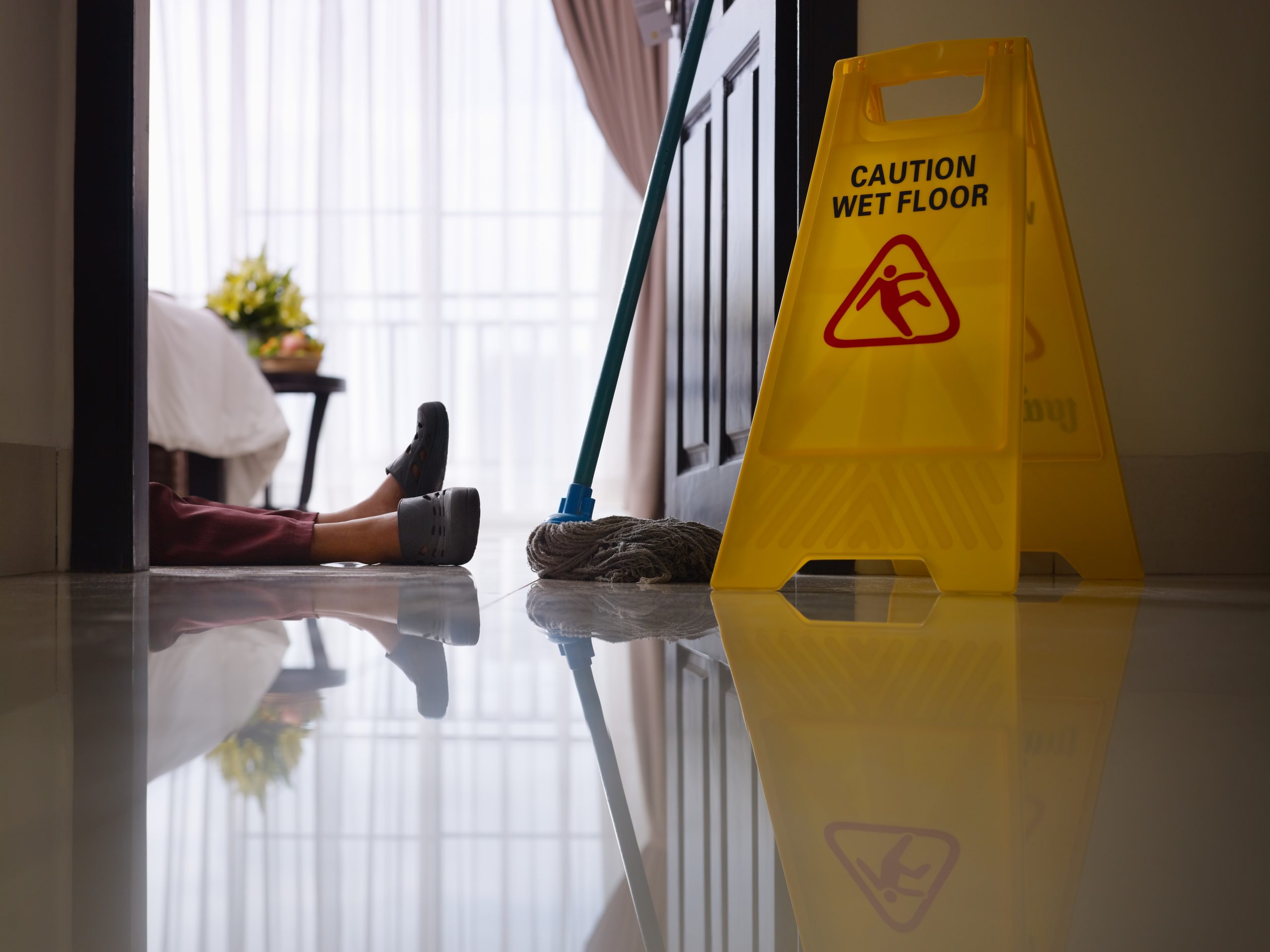
By: Adam L. Bantner, II
A recent case out of Broward County, FL beautifully illustrates some of the difficulties in prosecuting a slip-and-fall case. In sum, it’s not enough to prove that a person slipped on something and that person was injured by the resulting fall. There must be proof of negligence by the alleged wrongdoer, in this case, a hospital.
In Palma Gioieni v. South Broward Hospital District, FLWSUPP 2708GIOI (Fla. 17th Cir. Ct. 2018), Gioieni was walking down the hallway of a hospital while visiting some family. Gioieni claims that she subsequently slipped on a waxy substance and was injured by the fall.
However, in order to prove a slip-and-fall case, the plaintiff, Gioieni, must meet the requirements of Fla. Stat. 768.0755. It provides, in pertinent part,
(1) If a person slips and falls on a transitory foreign substance in a business establishment, the injured person must prove that the business establishment had actual or constructive knowledge of the dangerous condition and should have taken action to remedy it. Constructive knowledge may be proven by circumstantial evidence showing that:
(a) The dangerous condition existed for such a length of time that, in the exercise of ordinary care, the business establishment should have known of the condition; or
(b) The condition occurred with such regularity and was therefore foreseeable.
(2) This section does not affect any common-law duty of care owed by a person or entity in possession or control of a business.
Fla. Stat. 768.0755
Unfortunately for the plaintiff, there was very little evidence of what the substance on the floor was and for how long it had been on the floor. The Court ultimately found and held that:
After careful review, the Court finds that there is no record evidence to establish how long the substance had been on the floor prior to Plaintiff’s fall and that its existence was known to Defendant. See McCarthy v. Broward Coll., 164 So. 3d 78 (Fla. 4th DCA 2017) [40 Fla. L. Weekly D1060b]; See Encarnacion v. Lifemark Hosp. of Fla., 211 So. 3d 275, 278 (Fla. 3d DCA 2017) [42 Fla. L. Weekly D304a] (affirming summary judgment for defendant where record evidence did not establish how long the slippery substance upon which plaintiff fell had been on the floor); Delgado v. Laundromax, Inc., 65 So. 3d 1087, 1090 (Fla. 3d DCA 2011) [36 Fla. L. Weekly D1270a] (affirming summary judgment for defendant where there was no record evidence that defendant had actual or constructive notice of the water on the floor, “[i]n fact, all of the facts regarding the spill suggest that it was not on the floor for a long period of time prior to [plaintiff’s] slip and fall.”). Further, Tuso-Gallo’s testimony that the floor felt “sticky” or “grippy” in the absence of observing or feeling the substance on the floor in insufficient to create a jury issue. Encarnacion, 211 So. 3d at 278 (citing Wilson-Greene, 208 So. 3d at 1275) (finding that “[f]or such testimony to create a jury issue, the testimony must be accompanied by a “plus”, namely some fact or additional facts from which a jury can conclude that the substance was on the floor long enough. . .without assuming other facts such as the substance, in its original condition, was not ‘oily, dirty and dark.’); Delgado, 65 So. 3d at 1087 (concluding that the “mere presence of water is not enough to establish constructive notice”). Further, there is no record evidence that condition occurred with such regularity that Defendant should have taken action to remedy it.After careful review, the Court finds that there is no record evidence to establish how long the substance had been on the floor prior to Plaintiff’s fall and that its existence was known to Defendant. See McCarthy v. Broward Coll., 164 So. 3d 78 (Fla. 4th DCA 2017) [40 Fla. L. Weekly D1060b]; See Encarnacion v. Lifemark Hosp. of Fla., 211 So. 3d 275, 278 (Fla. 3d DCA 2017) [42 Fla. L. Weekly D304a] (affirming summary judgment for defendant where record evidence did not establish how long the slippery substance upon which plaintiff fell had been on the floor); Delgado v. Laundromax, Inc., 65 So. 3d 1087, 1090 (Fla. 3d DCA 2011) [36 Fla. L. Weekly D1270a] (affirming summary judgment for defendant where there was no record evidence that defendant had actual or constructive notice of the water on the floor, “[i]n fact, all of the facts regarding the spill suggest that it was not on the floor for a long period of time prior to [plaintiff’s] slip and fall.”). Further, Tuso-Gallo’s testimony that the floor felt “sticky” or “grippy” in the absence of observing or feeling the substance on the floor in insufficient to create a jury issue. Encarnacion, 211 So. 3d at 278 (citing Wilson-Greene, 208 So. 3d at 1275) (finding that “[f]or such testimony to create a jury issue, the testimony must be accompanied by a “plus”, namely some fact or additional facts from which a jury can conclude that the substance was on the floor long enough. . .without assuming other facts such as the substance, in its original condition, was not ‘oily, dirty and dark.’); Delgado, 65 So. 3d at 1087 (concluding that the “mere presence of water is not enough to establish constructive notice”). Further, there is no record evidence that condition occurred with such regularity that Defendant should have taken action to remedy it.
Palma Gioieni v. South Broward Hospital District, FLWSUPP 2708GIOI (Fla. 17th Cir. Ct. 2018)
As such, The Court granted Defendant’s Motion for Summary Judgment and dismissed the complaint.


